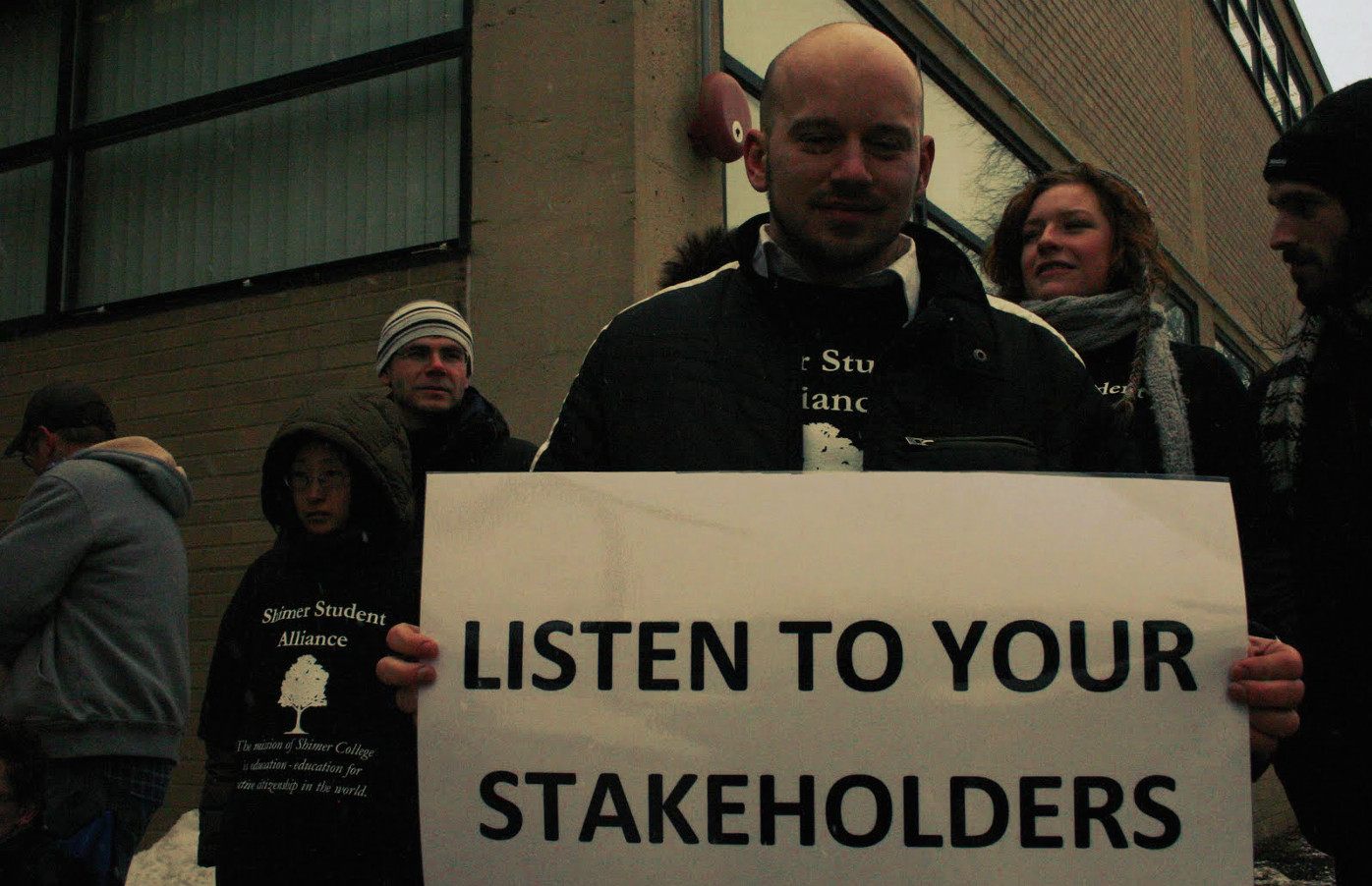
(This is an adaptation of a speech given at the Institute of Economic Affairs – For more information about the event please click here)
Christianity, politics the poor and the planet – what should the Christian attitude and response to these issues be?
I want to reflect on two things; the Christian responsibility for the environment and the role of the market in proving a mechanism for an appropriate response.
First, then, an appropriate Christian framework for dealing with environmental issues. It is an area where there is frequent muddled thinking. The Papal encyclical Laudato Si exemplifies both the basic principles and the muddle.
The doctrine of creation is paramount. It is the doctrine of creation which endows the human person with dignity. However, this same doctrine, drawn from Genesis 1 and 2, also establishes the principle of wealth creation. Man was placed in the Garden of Eden, we are told, to both work it (with the raw materials provided) – the principle of wealth creation, and to care for it – the principle of stewardship. To understand a Christian response to the environment you need both of those aspects, not just one.
Now, at the risk of getting too theological; since we live between the fall (hence not a perfect world) and the ultimate end (when all will be restored) there are trade-offs; we are to live, to work, to produce, to educate, to enjoy, to worship and we are to care, steward, oversee and act responsibly. We are not called to asceticism; Lydia is an example of a wealthy Christian businesswoman in the Bible; we are called to innovation, creativity and enterprise; and to steward and care for the world created by God.
The muddled thinking comes about because the language of ‘common good’ sometimes subverts the idea of ‘mutual flourishing.’ The latter bakes the cake; the former reflects upon its distribution. This also leads to the unhelpful presumption that government or global authorities provide the solution to every problem and there is frequently a misunderstanding of the market, which fails to give proper perspective to the role of business and enterprise
Second, then, how can the market help in the environmental debates? Four points:
The market is best at pricing and allocation. Certainly the market needs moral boundaries and moral people as participants and players. However, the market mechanism can be harnessed in support of the environment in ways that governments cannot achieve; governments invariably misallocate resources and hence excessive expectations of government are likely to harm rather than assist the environment.
Any Christian viewpoint that fails to give proper weight to wealth creation, to enterprise and to the market is, in my view, misrepresenting God.

Dr Richard Turnbull is the Director of the Centre for Enterprise, Markets & Ethics (CEME). For more information about Richard please click here.

First coined in 1984 by R. Edward Freeman in his book, Strategic Management: A Stakeholder Approach, Stakeholder Theory brought a new and somewhat radical approach to the study of organizational management and business ethics. Radical in the sense that it became the first theoretical framework to secure a prominent position for the interplay of values, responsibilities, and ethical decision-making in managing a business.
In contrast to the traditional shareholder view, stakeholder theory promotes a way of business conduct that takes into account all the parties that come into contact with a company’s ecosystem . From shareholders and employees, to customers, suppliers and the local community. A ‘stakeholder’ is a person or group that can affect or be affected by the business in question.
Here are three key lessons that we can learn from Freeman’s Stakeholder Theory:
- – Businesses that effectively manage all stakeholder relationships are more likely to succeed in the long-run.
- – Stakeholders must be considered together and not in isolation, working together in the same direction.
- – In the long-run, all stakeholders are equally important for the future of a business.
At the end of the day, both internal stakeholders (such as employees, management, shareholders) as well as external stakeholders (customers, the local community and even governmental or non-governmental organizations) – all have the power to significantly damage, and in extreme cases, bring down a business that mistreats them.
Wise companies must recognize the value in a stakeholder-driven management approach.

Andrei Rogobete is a Research Fellow with the Centre for Enterprise, Markets & Ethics. For more information about Andrei please click here.

CEME will be publishing a ‘theology of work’ in late 2015 so it was particularly helpful to listen to Yves de Talhouet, senior Vice-President of Hewlett-Packard on the subject.
Work is essential to human flourishing. All sorts of implications flow from that including for government welfare policies. However, work is not necessarily in the state it should be in. Gallup have shown that 16% of workers are actively disengaged from their work which has enormous cost in terms of productivity, community and the collective intelligence within a workplace.
Yves described work as under attack from two sources, both of which need to be resisted. The first is the classic ‘work is a necessary evil,’ or simply viewed as a prison to escape from. Actually work delivers well-being, defeats poverty and dependence and so needs to be encouraged. More interesting was Yves second point about work being under attack. In this case work was under attack from management systems driven only by numbers, productivity, targets etc, key performance indicators – all of which had the effect of disguising real work.
Work has three aspects:
A proper understanding of work involves all three of these aspects to be properly recognised. The problem is that the objective side (measurement, targets) has grown to the extent that nothing else seems to matter. Work is reduced to process and the consequence is disengagement. More value needs to be put into the subjective side (recognition, encouraging self-esteem) and the collective (team work, solidarity, community).
It seems to be me that we either over-emphasise the objective as Yves suggests so that we become obsessed by outputs and targets, or we ignore that productive side altogether in pursuit of some vague collective ideal. Work both dignifies humanity and is essential for producing goods and services. Work enables us to flourish and provide for our families. Work, for the Christian, reflects God’s purpose for us. Work is important.
If work is conveys both dignity and economic productivity then its lack destroys both. So unemployment is not a good thing and we should encourage policies which encourage enterprise, growth and hence employment. At least part of the purpose of a firm is to provide employment in the process of producing economic surplus. However, discouraging work also damages human dignity and purpose. CEME is strictly independent and works with people across the political spectrum. Nevertheless, if minimum wages are imposed at too high a level for all jobs, or welfare benefits set at too high a level, the consequence could be to discourage work. Equally, in order to encourage work there is surely a case for a degree of wage subsidy at the lowest points of the wage scale to encourage people into work. However, if tax credits potentially subsidise the proper wages employers should be paying then there is an even stronger case for a lower introductory rate of income tax which would encourage work, avoid subsidies and indeed the impact on take-home pay as income rises.
Whatever the policy prescriptions work not only must pay, but work must also be valued and invested with true worth, value and dignity in all its fullness.

Dr Richard Turnbull is the Director of the Centre for Enterprise, Markets & Ethics (CEME). For more information about Richard please click here.

The inspiring session of the day came from Daniel Servitje, Chairman and CEO of the Bimbo Group, Mexico.
Bimbo is one of the world’s largest baking goods industry firms with a capitalisation of US$12bn and around 129,000 employees.
The company was described as ‘rooted in long-standing values,’ shaped by strong corporate governance and a determination that businesses and society must work together for human dignity and the common good. The company, he said, was both highly productive and deeply humane.
The aims of the company where shaped by a matrix:
| Economic | Social | |
| External | Providing valuable goods and services to society | Contributing to the development of society in a sustainable way |
| Internal | Compensating employees, members, investors | Contributing to personal and professional development of employees |
This was a powerful reminder that profitability and sustainability are not incompatible. However, it is entirely reasonable for a company to have aims and objectives that are not simply defined by shareholder value maximisation. Of course, a successful and sustainable company may well do just that.
Daniel pointed out that his company was involved in sectors of the economy which attracted criticism – baked goods and health. The companies social responsibility platform was built on four areas:
All employees were encouraged to take part in the 3-day company sponsored off-site development event, covering person, family, work, society, culture and spirituality.
The fascinating thing about the presentation was the holistic and integrated nature of the approach to sustainability. Social responsibility was not an add-on, but fully part of the company and its objectives – and not as an alternative to profitability. At the heart of the company’s purpose was providing goods and services at profit. Alongside that came creating jobs, investment, promoting a formal economy (in a country, Mexico, where much of the economy is ‘informal’ which denies extensive tax revenue to the government), developing and sharing knowledge and skills. The outcome was better people, companies and countries.
It would be great if more companies, large and small, thought about their aims and objectives, the role of profit and sustainability, with the same degree of intent.

Dr Richard Turnbull is the Director of the Centre for Enterprise, Markets & Ethics (CEME). For more information about Richard please click here.

I am passing through Rio de Janeiro en route to Belo Horizonte to attend the XXV World Congress of UNIAPAC (The International Christian Union of Business Executives) on the theme of “Business, Government and civil society working together for the common good.”
This is my first visit to South America and Rio has presented me with a capitalist conundrum.
What a great city. The beach at Copacabana is wonderful (well, it looks marvellous, I have not yet had opportunity to explore!). The setting, the mountains, the water, the statue of Christ the Redeemer are exceeded only by the friendliness of the people.
I know well that many cities and metro areas like Rio throughout the Americas and Africa present contrasts and poverty and wealth mingle together. My driver took me past large swathes of ‘shanty town’ like housing. It was not that I have never seen anything like it before (I have visited Cape Town in the past), but the capitalist conundrum struck me again.
The quality of the housing was shambolic. Half-built buildings, many exposed to the elements, seemingly built one on top of the other stretching back from the highway into the hilly areas behind. The conundrum is this. Almost all had satellite dishes and air-conditioning units. So on the one hand there seems to be poverty (at least as represented by poor housing) and on the other the poor exercising consumer choices in a capitalist economy that would reflect many more affluent priorities.
Are these apparently irreconcilable priorities reconcilable? Can capitalism provide a solution to the poverty of housing and indeed poverty more generally as well as providing such consumer choice?
Here are a few thoughts:
The problems which I think arise are when wages are so low they are unable to sustain the basic infrastructure (housing) yet provide some opportunity for consumer choice. I cannot believe how cheap the taxi fares are.
According to the Economist Brazil is in a hole and still digging. One of the largest economies in the world has seen GDP contract, deficits grow and government corruption is rife. A country the size of Brazil, of course, and in its regional setting, faces many difficulties of environmental issues, inclusion and so on. The 2016 Olympics is seeing significant infrastructure investment, though, once again, government corruption damages the inclusivity of the growth which is generated. All of these things are likely to enhance the capitalist conundrum rather than solve it.
Capitalism does lead to some unintended consequences. I am not one who believes that equality per se is necessarily a desirable objective; but poverty (in absolute terms) surely cannot be acceptable to any decent human being? Yet, a market economy built upon ethical principles can be the solution to many of these problems.
Capitalism generates conundrums. Long live capitalism. Oh, but take poverty seriously and let’s use our business and economic opportunities to help.

Dr Richard Turnbull is the Director of the Centre for Enterprise, Markets & Ethics (CEME). For more information about Richard please click here.

What a mess. Many of you won’t like my title – surely the catastrophic failures and deceits at VW make the case against rather than for capitalism? Not so and here is why.
At the root of the problem with VW is dishonesty. Now, of course, that dishonesty might have been driven by sales targets, or a brand identity to be the ‘greenest’ car manufacturer, but the essence of the problem is that somewhere in the mix VW and its management engaged in deception, a deception which is, of course, indefensible.
However, we do learn from this episode (which has yet to run its course) a few lessons which help make the case for a moral, entrepreneurial capitalism.
Surely not, I hear you say, it was the regulators who were deceived. Indeed they were, but they didn’t know about it. The discovery that VW was using underhand methods to pass emission testing was made by a not-for-profit, non-governmental organisation that put some vehicles to the test in order to gather evidence to persuade Europe to adopt the USA’s more stringent nitrous oxide limits. From this source the Environmental Protection Agency launched its own investigations.
I can see more regulators and more regulations emerging from this. But they didn’t work first time around – closing the stable door after the horse had bolted.
Actually most people do want greener technology, not least in automobile engines. Indeed, a significant part of VW’s brand was that it was a market leader in the development of such technology. VW’s market share was driven by those that wanted both fuel efficiency and lower emissions. VW’s collapse of reputation will be severely damaging to its brand in the market place; and, indeed, as a publicly quoted company, to its share price (which has already wiped €15 Bn off its market cap.). Not ultimately because of fines by regulators, but because its customers will lose confidence in the brand and especially in the green technology claims.
Manufacturers will need to develop ‘clean diesel’ technology, fuel efficient and greener engines, more investment in cheaper hybrids and electric vehicles. They will have to do so not because government says so, but because consumers want a better, greener, more environmentally responsible deal.
Can you imagine if VW had been owned by the government? Ok, I know the state government of Lower Saxony has 20% of the voting rights, but if VW had been a state-owned, nationalised industry? Does anyone really imagine that the senior executive would be held to account? If the regulators are also the owners, then there is no incentive at all for transparency. Corporate structures are complex, as indeed is the situation when boards are not aware of what is being carried out in their name. However, the existence of a supervisory board, over and above the executive board, did at least provide a means for public contrition and the holding to account of the chief executive, but many not have known, but certainly carried the responsibility.
The problem is essentially a moral one; dishonesty.
Odd then really. A capitalist scandal makes the case for capitalism.

Dr Richard Turnbull is the Director of the Centre for Enterprise, Markets & Ethics (CEME). For more information about Richard please click here.

I am f ascinated that in the early years of the industrial revolution some of the great businesses were established by Quakers – not least the first iron foundry established by Abraham Darby.
ascinated that in the early years of the industrial revolution some of the great businesses were established by Quakers – not least the first iron foundry established by Abraham Darby.
There were many others, Cadbury, Rowntree, Clarks’ Shoes, Barclays and Lloyds. Why was this so? The answer lies in some combination of moral integrity, culture, networks and spiritual commitment or purpose. I am not suggesting we all become Quakers but rather that there are lessons, both commercial and moral, which we could usefully learn. Later this year we will hold a day conference on this subject, considering the lessons for today, including debate around trust and corporate structure – join the mailing list, contact the office or watch the website for details!
Too often in our debates about enterprise, ethics and society we use ‘binary’ terms. So, for example, ‘profit’ is set up against ‘people’ or ‘competition’ against ‘fairness.’ However, these dichotomies (capital versus labour is another one) are invariably simplistic. Profit may also enable people to flourish, through the provision of goods and services as well as employment. Competition may increase fairness by allocating resources for consumers at lower prices and ensuring efficient production. The impact of enterprise in an economy cannot not be reduced to an ‘either-or’ but affects many people and their livelihoods, from entrepreneurs to consumers. The encouragement of enterprise is essential especially through what is usually termed the ‘supply-side’ of the economy. This means a fair reward for the entrepreneurs who take risks, encouragements to invest and to employ and taxation regimes that incentivise.
From an ethical perspective however the responsibilities extend more widely. Companies, large and small, have a significant impact on wider society. Do virtuous companies exist or just virtuous individuals? A virtuous enterprise might be described as one which not only behaves well or acts properly but which acknowledges and acts upon its wider role in society, even challenging that society itself in the direction of virtue. Companies and individual business people can have an enormous impact upon their local communities for the good. They can indeed act morally commercially, but also, through their actions they can, in a free economy and a free society, shape virtue itself, through service, philanthropy and example. However, to do so, they must be fashioned and led by moral individuals. Values are at the heart of both virtuous enterprises and individuals; the restoration of commercial trust will have direct commercial benefit but will also benefit society itself.
We are committed to a research agenda to think deeply about business, ethics and responsibility. As well as other
events on this page the future focus includes:
– A CEME publication on Quakers in Business.
– Autumn events (and publications) in London on the Social Value of Capital Markets and The contribution of Catholic thinking on the market.
– A Conference in London on Quaker Capitalism: lessons for today.
– Plans for a conference in 2015 on ‘Capitalism in the 21st Century’.
We were joined, in January, by civic guests including the Lord Lieutenant for Oxfordshire and the Thames Valley Police Commissioner, together with over a hundred civic, university and business guests at Harris Manchester College to hear the Chief Executive of Barclays, Antony Jenkins, outline his vision for the restoration of trust. Antony detailed the challenge faced by Barclays, the problems of transforming the culture in an authentic way in such a large institution as well as genuine issues the bank still faces. Antony noted the importance of being a steward of the original vision of the bank’s Quaker founders. There followed an extensive time for questions – many topics from remuneration to lending to small businesses were covered – then dinner and a short response and vote of thanks from the Bishop of Oxford.
To view our latest research please click here.
How can private equity and social venture capital be effectively harnessed in economic development? Dr Kim Tan will explore whether this approach is more effective than inter-government aid. Professor Alex Nicholls of the Said Business School and Penny Fowler of Oxfam will respond.
25th June 2014, Said Business School Oxford from 6pm. Places limited. Email office@theceme.org for invitation.
To view our latest Events and Picture Gallery click here.
A seminar in London heard the Revd Dr Ben Cooper reflect upon the teaching of the Old Testament on the charging of interest. He argued that in order to assist the poor it was not only permissible but essential to charge interest on loans particularly for investment rather than consumption. The availability of credit and wealth creation is essential to the relief of poverty.
A talk by the Director, sponsored by CCLA Investment Management Limited.
12th June 2014, 4.30pm – 7pm, London. Email office@theceme.org for details.
We aim to both educate and transform. We seek to change opinion and make a practical difference. Our passion is for an effective, enterprise economy shaped by ethical values so that the world can be a better place.
We are an independent Centre, and rely entirely upon donations to fund our work.
In the UK donations can be sent payable to the Centre for Enterprise, Markets and Ethics, 31, Beaumont Street, Oxford OX1 2NP. We will supply a Gift Aid form and higher rate taxpayers can claim further relief via their tax returns
US citizens can send donations, payable to CAF America, for the benefit of ‘The Centre for Enterprise, Markets and Ethics’ (‘the CEME Fund’) to CAFAmerica, 1800 Diagonal Road, Suite 150, Alexandria, VA 22314 with the donor advice available from www.theceme.org or office@theceme.org. This is tax deductible.
Please advise us of any donation so we can thank you promptly and properly.
To sign-up to our Newsletter please click here or to download a .pdf version click here.